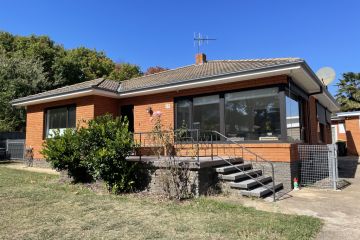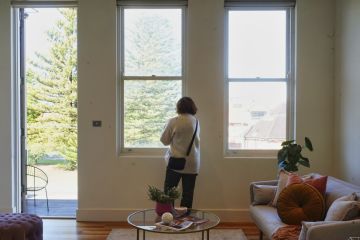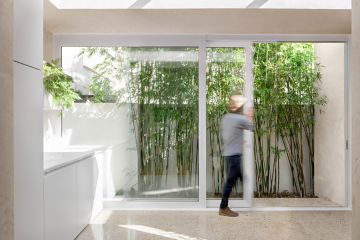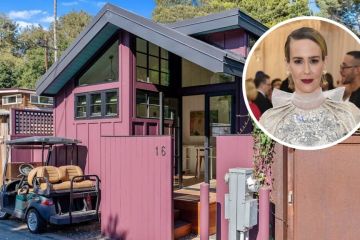Where to park a tiny house: the rules and what to do once you've bought one
If you can handle the space restraints, tiny houses offer the chance to get off the treadmill and step into a simpler life, free of knee-buckling mortgage repayments.
But when you’re swooning over photos of cute little houses, it’s easy to forget one big old challenge: if you buy or build a tiny house, where do you park it?
Local council rules vary across Australia, but most still treat tiny houses in the same way as caravans, say experts. You can usually live in them part-time, but only for a short period.
So how do tiny house owners manage it?
Fred Schultz, of Fred’s Tiny Houses, lived in his homemade off-grid house with wife Shannon and their daughter for a year, and now holds workshops on tiny house living.
He says they found it easy to find landowners willing to provide some space. Firstly, they thought about what they needed, which included full sun, drinking water and owners used to renting out land.
“When you look at those qualities, you say well you’re really looking at someone who does horse agistment,” says Schultz. “You say ‘I see that you do horse agistment – I was wondering whether you would be interested in doing a tiny house agistment?’ With a photo, they get it in one every time.”
Despite various offers, they wound up staying at two friend’s properties in regional Victoria – a “love deal”.
Schultz warns against buying your own parcel of land to house your tiny house, because of the risk you may be moved on.
“It’s a much safer, more prudent option with the current regulatory framework we’re living in is not buying land but making friends who are looking to maybe make a little bit of money on their land,” he says.
For Adam Simmonds, founder of website Tiny Real Estate, finding a place to park his tiny house was a matter of thinking creatively.
“Initially it was through Airbnb, believe it or not. I actually looked at properties in this area where we are now and made an educated guess if they were on at least five acres, preferably more, so there was space for us to park and not interfere with the current owner’s rental property,” says Simmonds.
“We just sent them a message and explained the situation, that we had this thing called a tiny house and that it was completely off-grid and we wanted to live in it for about a year on their property.”
He and his wife, who have a four-month-old baby, found a willing landowner who rents them part of her eight-hectare bush block near WA’s Margaret River for $80 a week.
His website, still in its early days, gives land owners and tiny house owners the chance to offer and search for land.
Generally, he says the best way to live in a tiny house is to “simply just stay out of sight, out of time and don’t upset anyone”.
Having spoken to council officers, he gets the impression they’re not generally out to nab tiny house owners, who are often trying to do the right thing by living off grid and taking care of the land.
“They only have to investigate if and when someone dobs you in because you’ve upset someone.”
Taking your tiny house off its wheels and putting it on stumps also changes the way it’s regulated, he says.
Rob Scott, who runs tiny house courses at his Hollyburton Organic Farm in Victoria’s Macedon Ranges, says finding a parking spot can pose challenges.
“People are making them [tiny houses] as big as they can, but in suburban areas if you go too high or too long you’re just not going to be able to manoeuvre them into place,” says Scott. “Obviously in the country size is less of an issue.”
Either way, building or buying a tiny house that is attractive, rather than a ramshackle affair, will up your chances.
Other creative approaches might be renting or buying a place, and renting the house out while you live in the backyard, he says. But you’ll still most likely need to go under the council radar.
If all else fails, says Simmonds, simply door-knock or letterdrop the area where you want to live.
Planning also helps. “You can say to the owner – ‘look we’ve got solar panels so we’re going to have our own power, this is how we’re going to take care of our greywater and our waste, we’re going to compost’,” says Simmonds.
We recommend
States
Capital Cities
Capital Cities - Rentals
Popular Areas
Allhomes
More







